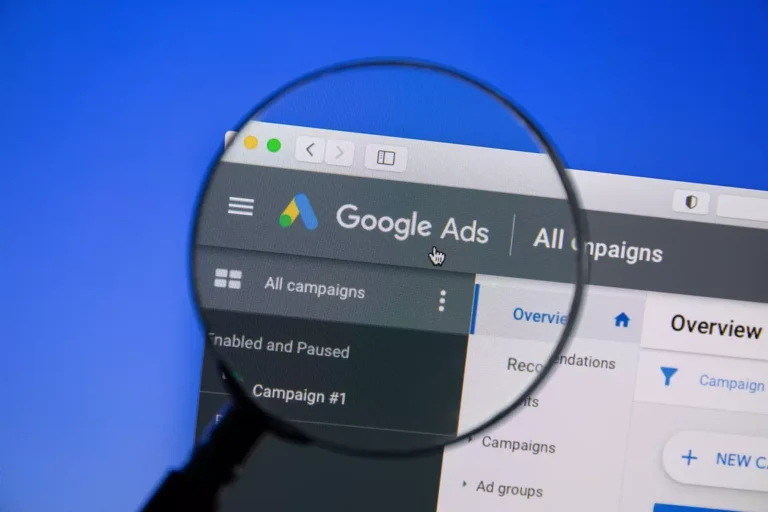Generative Engine Optimization Services:
Grow your brand presence with Generative Engine Optimization
Search is changing—fast. Today, AI-powered search results don’t just list links; they summarize, recommend, and cite. If your brand isn’t showing up in those answers, you’re invisible in the moments that matter most. Bohu Digital’s Generative Engine Optimization (GEO) services help you claim that space, engineering your content to be found, cited, and trusted by Google’s AI Overviews, Perplexity, and the next generation of search.

Stay Visible in the AI-First Search Era
Generative engines are rewriting the rules. Without GEO, your competitors will be the ones cited in AI answers while you disappear from the conversation.

Drive More Qualified, Ready-to-Buy Visitors
AI is educating your prospects making each citation and click more valuable. The right GEO strategy tracks brand sentiment and ensures those clicks go to you.

Future-Proof Your Search Presence
GEO builds on the SEO track record of demand generation success. Our GEO agency services will prepare your brand for an AI Search landscape that’s here to stay.
Trusted by
Your Guide to Winning in AI-Powered Search
Generative Engine Optimization (GEO) is about making sure your brand shows up (and stands out) when AI search engines deliver answers. At Bohu Digital, we help you meaningfully show in AI Search by combining proven SEO foundations with strategies designed for how AI reads, interprets, and cites content. We track and optimize for:
- Brand mentions
- Brand citations
- Brand sentiment
From in-depth audits to ongoing optimization and clear reporting, our GEO services give you the tools, tactics, and insights you need to own your share of AI-driven search results.

What is GEO?
GEO, or Generative Engine Optimization, is the process of optimizing your content to be cited in AI-generated search results. Unlike traditional SEO, which focuses on ranking in a traditional search engine like Google, GEO ensures your brand is included and visible in AI Overviews, Perplexity answers, and other generative search features. A comprehensive GEO strategy focuses not only on visibility, but citations and brand sentiment as well.
What is the difference between SEO vs. GEO vs. AEO?
SEO optimizes for traditional search rankings, GEO focuses on AI-generated citations, and AEO (Answer Engine Optimization) targets direct answers in featured snippets and voice search. GEO often overlaps with SEO and AEO, but specifically addresses how AI consumes, interprets, and cites content.
SEO
Search Engine Optimization
optimizes your site to rank higher in traditional search engines like Google through keywords, links, and technical improvements
GEO
Generative Engine Optimization prepares your content to be cited and surfaced by AI tools like ChatGPT and Google SGE, where search results are generated, not listed
AEO
Answer Engine Optimization structures your content to directly answer user questions, helping it appear in featured snippets, voice search, and quick answers
How to find success in GEO?
You succeed in GEO by creating authoritative, fact-rich, semantically-structured content that’s easy for AI models to extract and attribute. Bohu Digital GEO Agency Services additionally provides tracking on top of those activities, so a brand understands how its visibility is changing over time and how its products and services are being talked about in AI Search.
How do generative engine search results actually work?
Generative search uses both semantic search (traditional search engines) and large language models to synthesize answers from multiple sources. When you ask a question, an LLM like ChatGPT might perform an internet search to source the most relevant articles, read them, and then summarize and contextualize.
Which platforms or engines should we focus GEO efforts on first?
Start with Google AI Overviews, since it dominates global search traffic, then expand to ChatGPT, Perplexity, Bing Copilot, and sector-specific AI platforms relevant to your industry.
Is GEO just a passing trend or a long-term shift in search?
It’s a long-term shift. As AI search is more engaging and will only improve with time. As user behavior shifts to AI Search, GEO will be as essential as SEO was in the early 2000s. Like SEO, multiple brands will be competing for a limited number of referral spots. Brands that start now will have a lasting advantage.
Why Choose Bohu Digital
as Your GEO Partner?
Bohu Digital – GEO Partner Built for Results
- Proven track record in technical SEO, content strategy, and GEO
- Proprietary content networking system that builds topical authority
- Deep expertise in AI content parsing and entity optimization
- Transparent reporting focused on business outcomes, not vanity metrics
- Technology partners for meaningful reporting against AI prompts
Other SEO Agencies
- Focus narrowly on rankings, not citations
- Leveraging dated tactics that are being penalized in today’s algorithms
- Treat GEO the same as SEO
- Generic content strategies with no AI-specific adaptation
- Reporting that focuses on traffic, not qualified exposure
What GEO Can Deliver for Your Brand
Our clients see tangible business growth from GEO: more citations, more qualified traffic, and more conversions from high-intent searches.
+45%
increase in AI search citations within 6 months
3X
more traffic from branded AI mentions
Up to 28%
higher conversion rate from GEO-optimized queries
Begin here: GEO Readiness Audit
We evaluate your current content strategy, website, and authority signals against what AI engines look for. You’ll get a clear roadmap for improving your AI citation share, along with quick wins to boost visibility, fast.


From Audit to AI Authority
We implement the changes that matter most: structured data, fact-rich content rewrites, internal linking improvements, and targeted link acquisition to build the topical depth and trust AI models prefer.
See Your AI Visibility in Action
Our GEO reporting tracks your presence in generative results across key platforms, showing you where you’re cited, how often, and which queries drive the most impact, so you can invest in what works.

Schedule a Consultation!
Stop burning ad dollars and start earning with our team of paid search experts.
Get in Touch With Us
Let’s set up a consult to learn more about your goals and priorities.
Learn More

Content & SEO /
What Are the 4 Pillars of SEO?
Learn what the 4 pillars of SEO are, and get a free consultation with Bohu Digital today to create sustainable

Content & SEO /
What Are Keywords in SEO?
Learn what keywords are in SEO and how Bohu Digital can leverage them to create digital marketing success for your

Content & SEO /
A Guide to Keyword Research for SEO
Learn about the types of keywords for SEO intent, the types of keywords for SEO length, and more in this

Content & SEO /
Pillar Pages for SEO: What Are They, and How Do You Create One?
Explore what pillar pages for SEO are and how to create a pillar page. Learn how Bohu Digital designs and

Content & SEO /
How Much Should I Pay For Local SEO?
Typically, local SEO pricing ranges from $500 to $2,500+ per month, depending on your business needs, market competition, and goals.

Content & SEO /
Is Local SEO Worth It?
For small companies, local SEO levels the playing field; it allows you to outrank bigger brands for relevant local searches

Content & SEO /
10 Harmful SEO Practices To Avoid
In today’s digital-first landscape, having a robust SEO strategy is essential for business growth and visibility.

Content & SEO /
What Is Search Engine Positioning?
Search engine positioning refers to the process of securing and maintaining the highest possible spot for your website or specific

Content & SEO /
Keyword Cannibalization: What It Is And How To Fix It
Keyword cannibalization causes your content to compete against itself in search results or ad auctions. Discover how to identify and

Content & SEO /
How To Find The Best Content Writing Services
Businesses prioritize tailored content for high-intent audiences, as search engines favor precise, meaningful answers that meet user queries.

SEO Optimization Services /
B2B SEO Statistics
Businesses prioritize tailored content for high-intent audiences, as search engines favor precise, meaningful answers that meet user queries.

SEO Optimization Services /
A Guide to SEO for SaaS Companies
SEO for SaaS companies is the process of optimizing a company’s online presence to improve visibility in search engine results

SEO Optimization Services /
What Is Metadata SEO?
SEO metadata refers to the code elements embedded within a website’s HTML that provide information about the content of web

SEO Optimization Services /
How to Create a Successful B2B SEO Campaign in 2025
To win at B2B SEO, know your audience, set clear goals, research keywords, and optimize with on-page and off-page strategies.

SEO Optimization Services /
What Is SEO Marketing, and How Can It Help Your Business?
Generating effective keywords for SEO is a strategic process that requires understanding your audience, analyzing competitors, and utilizing the right

SEO Optimization Services /
How to Make a List of SEO Keywords
Generating effective keywords for SEO is a strategic process that requires understanding your audience, analyzing competitors, and utilizing the right

SEO Optimization Services /
How Many Internal Links per Page for SEO?
Bohu Digital emphasizes the importance of maintaining a strategic balance in internal linking. We recommend utilizing internal links to highlight

SEO Optimization Services /
Does ChatGPT-Generated Text Hurt Your SEO?
Is ChatGPT text bad for SEO? The simple answer is that while ChatGPT-generated text is not inherently bad for SEO,

SEO Optimization Services /
What is the Average Engagement Rate for SEO?
Discover the ideal SEO engagement rate, how to measure it, and tips to boost user interaction for better rankings and

SEO Optimization Services /
Should a Business Name Be Included in an SEO Blog Title in 2025?
Learn if including a business name in your SEO blog title improves visibility and engagement in 2025, and how to

SEO Optimization Services /
Is Google Punishing Keyword SEO Blogs?
Is Google penalizing keyword-heavy SEO? Learn how modern SEO favors context over frequency, avoids penalties, and aligns with Google’s evolving

SEO Optimization Services /
How to Create a Winning SEO Strategy in 2025
Master SEO strategy in 2025 with AI, mobile optimization, and search intent. Stay ahead with expert insights for success in

SEO Optimization Services /
How Many Types of SEO Services Are There?
Discover the 4 key types of SEO services—on-page, off-page, technical, and local—and how each can enhance your website’s visibility and

SEO Optimization Services /
Is Paying Someone to Do SEO Worth It?
Wondering if hiring an SEO expert is worth it? Discover the benefits, cost factors, and how professional SEO can boost

SEO Optimization Services /
Do SEO Services Work?
Learn how SEO services boost website visibility, drive traffic, and grow your business. Discover the benefits and costs of professional

SEO Optimization Services /
What Is the Best SEO Service?
Discover the best SEO services in the USA and learn how expert SEO strategies can boost your online visibility, drive

SEO Optimization Services /
How Much Does It Cost to Hire Someone to Do SEO?
Explore SEO costs, pricing models, and rates to make informed decisions to boost online visibility, attract the right audience, and

SEO Optimization Services /
Is SEO Worth It for a Small Business?
Learn why SEO is essential for small businesses to boost online visibility, attract customers, and drive growth. Discover the benefits,

SEO Optimization Services /
How Much Does SEO Cost for a Small Business?
For small businesses, understanding the target audience is paramount for SEO success. Discover more best practices here.

SEO Optimization Services /
Can I Do SEO for My Own Business?
For small businesses, understanding the target audience is paramount for SEO success. Discover more best practices here.

SEO Optimization Services /
SEO Tips For Small Businesses
For small businesses, understanding the target audience is paramount for SEO success. Discover more best practices here.

SEO Optimization Services /
SEO For Small Business
SEO for small business growth isn’t just a trendy consideration; it’s a fundamental strategy deeply embedded in the business roadmap

Content & SEO /
Is SEO Still Relevant in 2025?
Current trends in digital marketing indicate that SEO is not just surviving but thriving, adapting to new technologies and techniques.

SEO Optimization Services /
SEO Optimization Services
At its core, Search Engine Optimization (SEO) is the practice of enhancing your website’s visibility on search engines like Google.

Content & SEO /
How Do I Write SEO-Enabled Content?
An organized content structure not only aids in SEO but also enhances readability. Use headers and subheaders (H2, H3, etc.)

Content & SEO /
How Much Do SEO Content Writers Charge?
Determining the cost of an SEO content writer is vital for businesses aiming to invest wisely in digital marketing strategies.

Content & SEO /
Which Platform Is Best For Content Writing?
In the realm of content writing tools, the plethora of options available today can be overwhelming for businesses seeking to

Content & SEO /
What Is The Best SEO Article Writing Service?
When searching for the best SEO content writing services, businesses have a plethora of options to consider.

Content & SEO /
How Much Does It Cost To Hire An SEO Agency?
The pricing of SEO agency services typically aligns with three primary models: hourly rates, project-based pricing, and retainers.

Content & SEO /
Which Is Better SEO Or Content Writing?
Effective SEO content writing incorporates compelling copywriting techniques while ensuring the content is structured and keyword-optimized for visibility.

Content & SEO /
How Much Do SEO Agencies Charge?
Typically, monthly SEO agency fees can range anywhere from a modest $500 for basic services, to $10,000 or more for

Content & SEO /
What Do Content Writing Services Include?
The role of content writers has evolved to encompass a wide array of services designed to enhance a business’s online

Content & SEO /
Can A Beginner Do SEO?
Diving into SEO as a beginner can be exciting and overwhelming. However, understanding the basics and the right tools can

Content & SEO /
Is SEO Content Writing Worth It?
By understanding and applying SEO techniques, businesses can significantly enhance their online visibility, driving traffic and ultimately boosting conversions.

Content & SEO /
How To Use SEO Writing AI For Free?
Learn about which AI writing tools for SEO have free trials and freemium options and which plans are worth the

Content & SEO /
How To Use ChatGPT For SEO
AI writers, like ChatGPT, assist in drafting articles, product descriptions, and more, while naturally incorporating keywords and phrases that enhance

Content & SEO /
What Is The Best AI Writer For SEO?
The best AI tools understand search engine trends, integrate relevant keywords, and craft content that attracts both readers and algorithms.

Content & SEO /
Can AI Write SEO Content?
As businesses explore digital marketing solutions, the role of AI becomes crucial, especially in generating content that fuels visibility and

Content & SEO /
Can You Do SEO Writing With AI?
AI is a powerful ally in crafting SEO content because it can analyze keywords, optimize keyword placement, and conduct competitor

Content & SEO /
Does Google Have A Free SEO Tool?
Google Analytics is a fundamental free tool that every business should harness. It provides a treasure trove of data about

Content & SEO /
How Do I Choose A Content Writing Service?
Understanding the pricing of content writing services is crucial for businesses seeking to enhance their digital presence.

Content & SEO /
How Do I Write An SEO Website?
Making an SEO-friendly website involves strategic design and content optimization to ensure visibility, relevance, and usability for both search engines

Content & SEO /
Best Content Writing Services For Websites
Several leading content writing platforms have established reputations for delivering high-quality writing that captivates audiences and drives organic engagement.

Content & SEO /
What Is SEO For Beginners?
Search Engine Optimization, or SEO, is the process of optimizing a website to rank higher on search engines like Google,

Content & SEO /
How Much Do SEO Writers Charge?
SEO writer rates depend on content length, topic complexity, and required SEO expertise, with costs varying by project needs and

Content & SEO /
Do SEO Agencies Write Content?
The goal of SEO agencies is to ensure that a company’s website is visible to potential customers through strategic content

Content & SEO /
How Much Does It Cost To Pay Someone For SEO?
SEO costs can vary significantly based on several key elements that determine how much you might spend on optimizing your

Content & SEO /
SEO Content Writing Examples
SEO content writing involves strategically incorporating keywords and key phrases related to your business into the content.

Content & SEO /
Which Tool Is Best For Content Writing?
There is a wide array of content writing tools available, each designed to address specific writing needs.

Content & SEO /
Which Is The Best Free SEO Tool For Beginners?
When selecting the best free SEO tools, beginners should prioritize ease of use and comprehensive functionalities.

Content & SEO /
Which Blog Host Is Best For SEO?
When it comes to selecting a blog platform, SEO is a crucial consideration, as it significantly impacts your blog’s visibility

Content & SEO /
What Is The Best SEO Content Writing Agency?
The best agencies have a comprehensive understanding of SEO principles, including keyword research, on-page optimization, and user experience

Content & SEO /
What Is The Rate For SEO Writing?
Setting the right content writing rate is critical not just for your financial success but also for maintaining a competitive

Content & SEO /
What Are The Best SEO Writing Tools?
There are several SEO tools that can help with writing, from SEMRush to SurferSEO and even AI tools like CoContent.ai

Content & SEO /
How Important Is Content Writing For SEO?
Content is the cornerstone of SEO, serving as the primary medium through which search engines interpret the subject and relevance

Content & SEO /
How Do I Write A Content Brief For SEO?
A well-crafted SEO brief is a roadmap that outlines the objectives, target keywords, and structure of the content.

PPC Management Services /
How Do I Choose A Good PPC Agency?
Before diving into the selection process of a PPC agency, it is crucial to have a clear understanding of your

PPC Management Services /
What Does A PPC Manager Do?
The primary role of a PPC Manager involves overseeing paid advertising campaigns on various platforms like Google Ads, Bing Ads,

PPC Management Services /
What Is SEO and PPC in Marketing?
Search Engine Optimization (SEO) and Pay-Per-Click (PPC) advertising are two fundamental pillars of digital marketing

PPC Management Services /
Is PPC Better Than SEO?
PPC (Pay-Per-Click) advertising continues to be a fundamental component of digital marketing strategies for businesses seeking growth

PPC Management Services /
What Is The Difference Between CPC And PPC In Google Analytics?
In digital marketing, PPC campaigns are designed to maximize visibility and attract clicks, whereas CPC helps evaluate budget related to

PPC Management Services /
PPC vs CPC
CPC, or Cost-Per-Click, refers to the actual price you pay for each click in a PPC, or pay-per-click campaign.

PPC Management Services /
Is PPC Worth It?
PPC (Pay-Per-Click) advertising continues to be a fundamental component of digital marketing strategies for businesses seeking growth

PPC Management Services /
What Is An Example Of A Successful PPC Campaign?
Many prominent brands have mastered the art of PPC to achieve remarkable growth. For instance, Amazon frequently uses PPC to

PPC Management Services /
PPC Marketing Examples
Understanding effective PPC marketing can be greatly enhanced by examining real-life examples of PPC campaigns.

PPC Management Services /
Google Ads For B2B
Google doesn’t impose a strict minimum bid. Instead, it relies on factors such as the competitiveness of the keywords and

PPC Management Services /
Google Ads For Real Estate
Google doesn’t impose a strict minimum bid. Instead, it relies on factors such as the competitiveness of the keywords and

PPC Management Services /
Google Ads For Doctors And Medical Practices
Doctors and medical practices often question whether they can advertise their services on Google Ads. The short answer is yes.

PPC Management Services /
What Is The Minimum Bid For Google Ads?
Google doesn’t impose a strict minimum bid. Instead, it relies on factors such as the competitiveness of the keywords and

PPC Management Services /
How Do I Advertise My Small Business On Google?
There are several key factors that influence how much you might spend on Google Ads: keyword competitiveness, location, and ad

PPC Management Services /
Google Ads For Small Business
There are several key factors that influence how much you might spend on Google Ads: keyword competitiveness, location, and ad

PPC Management Services /
How Much Does PPC Cost On Amazon
When compared to other platforms such as Google Ads and Facebook Ads, Amazon PPC typically offers a more direct route

PPC Management Services /
How much does PPC cost on Google?
While there is no universal answer to the question, ‘How much does PPC cost on Google Ads?’ the cost can

PPC Management Services /
How Much Should You Pay For PPC & How Much Does It Cost To Hire A PPC Agency?
Hiring a PPC agency can be one of the most potent decisions for supercharging your digital marketing efforts.

Fractional CMO Services /
How To Hire a Virtual CMO
The best advice for how to hire a virtual CMO or a fractional CMO is to first identify your organization’s

Fractional CMO Services /
How Your Business Can Profit from a Virtual CMO
How Your Business Can Profit from a Virtual CMO

Fractional CMO Services /
How Much Does a Virtual CMO Cost?
The average fractional or virtual CMO monthly cost is approximately $11,667, which can be determined by dividing the average yearly

Fractional CMO Services /
Virtual CMO
Virtual or fractional CMO services give startups and small businesses access to highly impactful marketing leadership at a fraction of

Fractional CMO Services /
Is a Fractional CMO Worth It?
If you need hands-on help to revitalize your next marketing campaign, you can work with a fractional CMO while keeping

Fractional CMO Services /
How Many Hours Does a Fractional CMO Work?
One advantage of a fractional CMO is that they can work as few or as many hours as you need.

Fractional CMO Services /
When should I hire a fractional CMO
Deciding when you should hire a fractional CMO depends on several factors, such as budget, workload, and more.

Uncategorized /
Hire a Fractional CMO
Is it time to hire a fractional CMO? How do you hire a fractional CMO? How much does it cost

Fractional CMO Services /
What Is the Average Rate for a Fractional CMO?
The average fractional CMO salary is $114,547 per year, as reported by Glassdoor. However, not all fractional CMO agreements operate

Fractional CMO Services /
How Much Does a Fractional CMO Charge Per Hour?
The fractional CMO hourly rate typically ranges between $200 and $350 per hour, according to LinkedIn.

Fractional CMO Services /
What Is the Difference between a CMO and a Fractional CMO?
Fractional CMO services are the á la carte alternative to traditional, full-time CMOs. For startups and other small to mid-sized

Fractional CMO Services /
Fractional CMO Meaning
Fractional CMO services can give small and mid-sized businesses a unique competitive edge. By providing high-quality marketing leadership at budget-friendly

Fractional CMO Services /
What Are the Benefits of a Fractional CMO?
Fractional CMO services can be the missing ingredient that small- and mid-sized businesses need to optimize their marketing efforts. From

Fractional CMO Services /
How Much Does a Fractional CMO Cost Per Month?
Fractional CMO services offer professional marketing executive services at a fraction of the cost of a traditional chief marketing officer.

Fractional CMO Services /
Fractional CMO Services
Marketing is one of the first roles that businesses consider cutting during hard times, according to research published by Business

Fractional CMO /
What Size Company Needs a CMO?
Companies of all sizes can benefit significantly from the roles a CMO performs. However, not all companies need a full-time

Fractional CMO /
Five Reasons Your Marketing Isn’t Working (And What You Can Do About It)
For many businesses marketing has not been a top priority. Chances are your team is maintaining decisions made years ago

Paid Media /
Rising Costs of Paid Media (And How To Manage It)
The worst thing about marketing is the cost. There is no denying that it’s expensive and we’ve continued to see
Frequently Asked Questions
-
What Is Generative Engine Optimization (GEO)?
Generative Engine Optimization (GEO) refers to marketing tactics used to achieve brand and product visibility in an era where AI-driven search engines are rapidly rewriting the rules of digital search. While traditional SEO focuses on optimizing content for organic rankings in Google’s results (and SERP features), traditional search engine optimization also emphasizes ranking in search engine results and search engine results pages (SERPs). GEO is all about influencing the content generated by large language models (LLMs) like ChatGPT, Google Gemini, and Bing’s Copilot in order to receive brand awareness and referral traffic. Unlike traditional search engines, which rely on keyword matching and backlinks, generative search engines and generative engines synthesize context-rich, conversational responses using generative AI engines and AI-powered search engines, pulling from high-quality web content and website content.
After the first paragraph, it’s important to note the rise of the search generative experience—a new AI-driven search environment where generative search engines generate detailed, context-aware responses to user queries, often referencing multiple sources and well-optimized blog posts.
In other words, GEO tactics help your brand, products, and insights be cited or referenced directly in the clear, conversational answers produced by AI assistants. This means optimizing content structure, clarity, and authority (geo focuses) for AI-powered search engines, and ensuring your content’s visibility and content visibility in AI-generated outputs and AI-generated responses. Incorporating brand mentions and user generated content can further enhance your presence in these AI-driven environments.
The emergence of Generative Engine Optimization is rooted in the behavioral shift happening in search and content consumption. Over the past two decades, search engine optimization (SEO) was the primary marketing tactic used to help businesses rank at the top of search results. Traditional SEO practices and traditional search engine optimization focus on keyword research, backlinks, meta tags, and ranking in search engine results pages to drive organic search traffic and improve search rankings. As AI chatbots and generative search interfaces become the starting point for research, shopping, and decision-making (often at the expense of traditional search), it’s no longer enough to focus solely on keyword rankings in organic search. Keyword stuffing should be avoided, as it can harm content quality and effectiveness; instead, prioritize natural keyword usage and the integration of relevant keywords. Enter GEO—a discipline that incorporates traditional SEO, but goes further into content optimization with a special focus on searcher intent, optimizing website content and web content for both traditional and AI-driven search engines. GEO and SEO share similarities (geo and seo similarities), and many transferable concepts exist between them (seo geo), but GEO is not replacing SEO (geo replacing seo, replacing seo); rather, it complements and enhances it for the evolving landscape.
To succeed, you must create content and focus on content creation and creating content that is tailored for generative engines, leveraging AI tools, AI-driven tools, generative AI tools, and SEO tools to analyze data points, optimize content, and improve keyword usage. Using an AI Search Grader can help evaluate and optimize your content for AI-powered search engines, including Google’s AI Overviews and AI overviews. Visual and interactive elements like videos and infographics are increasingly important for engagement and visibility. High content quality, structured web content, and strategic keyword usage all contribute to your content’s visibility and performance in both traditional and generative search platforms, driving organic search traffic and ensuring your brand is featured in AI-generated outputs. Natural language processing also plays a critical role in helping AI systems understand and present your content accurately.
-
Why Is GEO Important?
Generative Engine Optimization (GEO) is quickly becoming an important digital marketing strategy for brands that are looking for visibility, traffic, and conversion online. GEO improves content’s visibility and content visibility in AI-driven search environments, making it essential for brands to stay competitive. AI-driven search is fundamentally shifting how information is discovered online, and referral traffic from Generative AI models is the fastest growing marketing channel. The importance of optimizing content to appear in generative summaries and AI-powered results is here. Content quality is crucial for appearing in generative summaries, as high-quality, well-structured content is more likely to be selected by AI systems. Not only does GEO ensure that your brand gets seen in the new search ecosystem that has historically been the behavioral leader for bottom-of-the-funnel conversion across industries, but it also sets the foundation for long-term authoritative presence, credibility, and market leadership. To optimize content for AI-powered results, GEO optimizes content by aligning it with the requirements of generative engines, improving its performance and discoverability. GEO also has a significant impact on organic search traffic and search rankings, helping brands attract more visitors and increase their online presence.
-
How Does GEO Work?
Generative Engine Optimization (GEO) is a systematic approach that leverages the mechanics of generative AI algorithms and Large Language Models (LLMs) to secure your brand’s position in AI-powered search results. It bridges content strategy, technical SEO, and brand authority signals with a focus on understanding and optimizing for how LLMs curate and present answers. As a business leader, mastering GEO means your offerings will surface consistently in generative responses, transforming sporadic visibility into sustained digital dominance.
At its core, GEO revolves around understanding how modern search engines, supercharged by generative AI, ingest, synthesize, and serve content to answer complex search queries. GEO is all about using landing pages and long-form content to train LLMs like ChatGPT, Google Gemini, or Bing Copilot to deliver better and more informed conversational responses. In return, those platforms will reference your brand or, depending on the query, directly send traffic for further reference or conversion.
To optimize for these engines, brands must proactively analyze the structure and data sources LLMs prioritize. Analyzing data points such as search metrics and user intent is essential to inform effective GEO strategies. Brands should look at the hierarchy of how their products and content work together to deliver a cohesive narrative that lines up with searcher intent, backed up by content that can be read conversationally. Leveraging AI tools, AI driven tools, and generative AI tools can further enhance technical optimization and improve content performance. The good news is that if you’ve been doing user-focused SEO with a focus on E-E-A-T principles, the foundation you need to rank in ChatGPT and other LLMs has already been laid.
When conducting keyword research, it is important to focus on strategic keyword usage and incorporate relevant keywords identified by AI tools to improve search engine rankings and visibility.
In the context of content optimization, brands need to optimize content for AI-driven search engines, ensuring that GEO optimizes content structure and relevance for generative AI responses.
Finally, when developing content, prioritize content quality and effective content creation to ensure your material is comprehensive, well-structured, and valuable for both users and AI systems.
-
How Does GEO Adapt Techniques From SEO?
At their core, both SEO and GEO are similar marketing activity sets designed to deliver visibility, traffic, and conversion. There are notable geo and seo similarities, as both share foundational concepts and transferable strategies, leading to the emergence of the term ‘seo geo’ to describe the evolving relationship between the two. While there is a lot of overlap, these strategies are aimed at two different channels. GEO is a set of marketing and web activities designed to optimize a website for visibility and reference in Generative AI or Large Language Models. SEO is the set of marketing and web activities designed to optimize a website for a traditional search platform like Google or Bing. LLMs and Generative AI lean heavily on semantic search for deep research and content training, so the fundamentals of GEO borrow from SEO, and utilize tactics such as keyword research, directly answering user questions, and the demonstration of expertise, authority, and trustworthiness (E-E-A-T). Traditional SEO practices, including keyword research, backlinks, and meta tags, remain essential, and traditional search engine optimization continues to focus on ranking in search results through these foundational techniques.
In both disciplines, aligning with user intent and optimizing the website for engagement are critically important. However, while SEO aligns content for web crawlers and ranking algorithms, GEO fine-tunes your digital presence for large language models (LLMs) that both crawl and synthesize information for generative summaries. As a result, GEO leans further into natural language fluency, structured data, frequently updated content, and the strategic use of authoritative sources, because AI engines synthesize rather than rank. When considering search platforms, traditional search engines and a traditional search engine like Google provide ranked lists of sources, whereas generative AI platforms deliver synthesized, conversational answers.
SEO establishes the foundation for GEO. Unlike traditional SEO, which focuses on ranking in SERPs and building backlinks, GEO optimizes content for AI-driven generative models and their unique requirements. Unlike traditional search engines, which prioritize keyword matching and backlinks, generative AI search engines focus on understanding user intent and providing comprehensive, relevant responses. GEO finetunes the landing pages and content, leveraging technical work and additional intent signals to make the content more likely to show up in generative AI results.
When structuring your content, the importance of high-quality web content and well-structured website content cannot be overstated, as both are critical for visibility in both traditional and generative search engines. In the context of content optimization, focusing on content quality and enhancing content visibility are essential for ensuring your material is discoverable and accurately represented in AI-generated responses.
-
What Are The Fundamental Differences Between GEO And SEO?
The primary delineation is audience: SEO’s endpoint is human users viewing internet browser search results, while GEO’s is the AI engine itself, determining which content will be cited, referenced, or used in AI-generated answers. GEO aims to have your content featured in both ai generated outputs and ai generated responses, which are synthesized by AI systems to provide direct, conversational answers. SEO prioritizes clickable snippets and rich results on SERPs, while GEO must ensure your brand is present in conversational answers and multi-step responses generated by AI. In this context, generative ai engines, generative search engines, generative engines, and ai powered search engines like ChatGPT, Perplexity, and Google’s AI Overviews are transforming how information is retrieved and presented, focusing on context-rich, synthesized outputs. GEO involves longer form content with direct factual statements (optimized for extraction), structured content (such as FAQs and tables), and maintaining up-to-date authority signals across multiple platforms, knowing that LLMs learn from broad, cross-channel footprints. Referencing multiple sources is also crucial, as AI-driven systems synthesize information from various providers to generate comprehensive and authoritative responses.
Both GEO and SEO demand a thoughtful approach to content structure and technical signals. For GEO, clear headings, semantic HTML, explicit and unambiguous statements, and the use of schema markup all help AI extract and synthesize accurate information. The importance of content quality cannot be overstated, as high-quality, well-structured, and relevant content is essential for visibility within AI-generated outputs and summaries.
Technical SEO is also relevant for GEO. For example, page speed, mobile responsiveness, and secure protocols continue to matter, but so do signals from authoritative third-party profiles or data repositories that feed generative models. In the same way a slow landing page might increase the bounce rate of a human user, a searchbot organizing information for AI won’t wait for your page to load. AI overviews, including Google’s AI Overviews, now play a significant role in summarizing and presenting content from multiple sources, making it vital to optimize for these new interfaces. Ultimately, to outperform in an AI-driven world, your content must be designed not only to rank but to be directly referenced, summarized, or quoted, demanding a dual strategy powered by SEO and GEO best practices. Brand mentions are increasingly important to ensure your messaging remains accurate and visible in generative engine outputs, while user generated content provides valuable engagement signals and influences both AI-driven insights and brand sentiment.
-
How Can You Build Brand Expertise and Trust for Generative Search?
Building authority in your vertical is crucial for generative engine optimization. Regularly publish in-depth, expert-driven content, acquire relevant accreditations, and maintain active participation in industry publications and events. Incorporating brand mentions across your content helps maintain brand visibility and ensures your messaging remains accurate in AI-generated outputs. Make it a goal to become the “go-to” resource that AI search engines trust when compiling answers. Foster ongoing trust by updating existing content, correcting inaccuracies swiftly, and showcasing customer success stories that reinforce your expertise. When discussing engagement, encourage user generated content, as it provides valuable insights into brand sentiment and audience engagement, which are increasingly analyzed by AI systems. In the context of expertise, prioritize content quality and effective content creation—well-structured, relevant, and comprehensive content is essential for AI-powered search engines to generate accurate, detailed responses.
Doing this will radically increase your brand awareness with your target market and future-proof your digital marketing strategy as more and more searchers turn to AI search tools to research and buy products and services.
-
How Do Brand Expertise, Trust, and Authority Factor into GEO?
Generative AI will more readily recommend and reference brands that have an established record of expertise, authoritative content, and trustworthiness. Within the GEO framework, insightful perspectives that align with intent and other authoritative website references can mean more consistent referral traffic from Generative AI. Third-party citations, thought leadership, and positive engagement signals are all factors AIs use to judge your suitability for inclusion in their outputs. AI systems analyze various data points, such as search metrics and user intent, to assess brand expertise and authority.
Businesses that invest in brand expertise and authority will naturally rise above competitors in both direct SEO and generative environments. Leveraging AI tools, AI driven tools, and generative AI tools can further support building authority by optimizing content structure, analyzing user intent, and enhancing visibility in generative AI responses.
Additionally, focusing on content quality and effective content creation is essential for optimizing content for AI-powered search engines and improving search visibility in the evolving AI search landscape.
-
How Do You Integrate GEO into Your Current SEO Strategy?
Integrating Generative Engine Optimization (GEO) into your existing SEO strategy is not just a tactical upgrade—it’s an urgent mandate for business owners aiming to maximize visibility in an AI-dominated search landscape. While traditional SEO practices and traditional search engine optimization focus on keyword research, backlinks, and meta tags to improve rankings in search engine results, GEO represents an evolution that complements these foundational techniques. GEO doesn’t replace SEO; it evolves your strategy to ensure your brand’s expertise is clearly understood both by search engines and the generative AI models now shaping the future of search traffic. To stay ahead, your current SEO foundation must incorporate GEO tools, methodologies, and cross-disciplinary best practices to ensure your content surfaces not just through links but through answers directly provided by AI.
In the context of search platforms, it’s important to recognize that traditional search engines and a traditional search engine like Google or Bing deliver ranked lists of sources, while AI-driven platforms generate direct, conversational answers. The challenge is that GEO builds on a modern SEO strategy. This means for our clients, Bohu Digital first runs a comprehensive SEO audit before ever implementing GEO-specific strategies. The traditional SEO concepts of content authority and expertise, website technical hygiene, and keyword optimization can all be positive or negative forces on a brand’s probability of being referenced by AI.
When developing your strategy, prioritizing content quality and effective content creation is essential. High-quality, well-structured, and relevant content ensures that both traditional search engines and AI-powered systems can accurately interpret and present your information, maximizing your visibility across all search platforms.
-
How Is Search Behavior Changing with Generative AI?
Searchers today expect instant, accurate, well-structured, and nuanced answers to their queries. Generative AI platforms like ChatGPT and Perplexity are delivering those responses directly within the search interface. The search generative experience is transforming how users interact with search, shifting from traditional results to AI-generated, context-rich answers. Instead of ten blue links, users now interact with AI summaries that curate, synthesize, and cite the most relevant brands and voices. These AI overviews, including Google’s AI Overviews, generate comprehensive responses by pulling information from multiple sources and presenting authoritative snippets in search results.
For business owners, this means that traditional search ranking is just one piece of the puzzle. Prominence now depends on being included and highlighted in generative outputs that guide user decisions in real-time. Incorporating visual and interactive elements such as videos, infographics, and quizzes within your content can boost engagement and improve visibility in AI-driven search engine responses. Well-optimized blog posts that reference multiple sources are more likely to be cited by AI models, increasing your chances of being featured in these new search experiences. Failing to optimize for these AI-generated results risks your business being sidelined, regardless of your past SEO successes.
-
What Are Key Takeaways for Business Owners on GEO?
For business owners, embracing Generative Engine Optimization is no longer a choice. It’s a necessity to continue winning in search as more searchers move from using Google to find products or services to using tools like ChatGPT. GEO focuses on optimizing content structure, clarity, and authority specifically for AI-driven search engines, ensuring your content is easily interpreted and surfaced by generative AI models.
The most important takeaway is that businesses must proactively optimize their content and website for generative AI platforms to maintain and enhance their online visibility, authority, and lead generation. GEO is not replacing SEO; rather, it complements and enhances traditional SEO strategies, making it essential to integrate both approaches for maximum effectiveness in AI-driven search environments.
This starts with a modern approach to SEO with key GEO tactics applied in addition. Improving content visibility and your content’s visibility within AI-generated responses is crucial, as it increases the chances that your information will be accurately presented and ranked by generative engines.
By understanding the core principles of GEO and integrating them into your digital strategy, you’ll ensure your brand remains front and center as AI-driven search engines become the standard. We recommend working with a partner that has a track record in both content-driven SEO and GEO rankings.
-
What Are the Benefits of Generative Engine Optimization?
At its core, GEO increases your brand’s visibility across AI-driven, conversational, and answer-first search platforms while positioning your brand as an industry authority. GEO also improves content visibility and your content’s visibility in AI-driven search by optimizing how easily AI models can access and present your information in responses.
Let’s look at a few of the main benefits that optimizing for GEO could have for your brand. GEO can significantly impact your search rankings and drive more organic search traffic by aligning your content with AI-driven algorithms and keyword strategies.
When discussing AI-powered search, it’s important to consider the search generative experience, where search engines generate detailed, context-aware responses rather than just providing links.
In the context of content, focusing on content quality and effective content creation is essential. High-quality, well-structured, and relevant content ensures your brand stands out in AI-generated results and meets the evolving standards of generative engine optimization.
Enhanced Visibility in Conversational and AI-Powered Search
One of the primary benefits of generative engine optimization is visibility within generative AI-powered interfaces such as Google SGE, Bing AI chat, and other emerging search tools that prioritize synthesized answers over traditional links. AI powered search engines, including generative AI engines like ChatGPT and Perplexity, as well as features such as AI overviews and Google’s AI Overviews, are reshaping how content is discovered and presented by generating comprehensive, conversational responses from high-quality sources. According to a recent report by SemRush, AI Search is rapidly growing and is a trusted medium for brand research. Traditional SEO focuses on getting you to page one of internet search engines, GEO increases your odds of being quoted, referenced, or recommended directly in AI results. This shift means decision-makers and consumers are more likely to encounter your brand in the fastest-growing authoritative, conversational medium, making content quality and content visibility more important than ever for success in AI-driven search.
Staying Ahead of Competitors in Evolving Search Landscapes
By leveraging GEO techniques, your business can surpass competitors still reliant on outdated strategies. Early adoption helps capture valuable mindshare as AI-search experiences become the default for users. Utilizing SEO tools, AI tools, AI driven tools, and generative AI tools enables you to optimize content creation, structure, and visibility for generative search engines. Crafting content that’s structurally and semantically optimized for generative models not only improves performance now, but also builds a durable foundation for whatever comes next in the world of search.
When developing your strategy, analyzing data points such as search metrics and user intent is essential for tailoring content to AI-driven search engines. Evaluating your content with an AI Search Grader can help measure GEO performance and improve visibility in generative AI search results. Focusing on content quality and effective content creation ensures your material is relevant, comprehensive, and well-structured for both users and AI systems.
AI can leverage either a search algorithm or a previously trained neural network. Most Models get training updates on a 6-12 month basis, meaning if your brand misses the latest training round, it might not get referenced across important topics for the next 6-12 months.
Improved Brand Reputation and Authority
GEO directly supports brand reputation by increasing the chances that your product or service will be consistently referenced in AI-generated answers. Including brand mentions in your content strategy helps ensure your brand’s messaging remains accurate and current in generative engine outputs. These references build consumer trust organically with searchers.
When it comes to engagement, leveraging user generated content is essential, as it provides valuable insights into audience sentiment and increases brand interaction across platforms.
Over time, repeated visibility across multiple generative channels strongly associates your brand with expertise in your industry, driving both credibility and qualified leads. In addition, focusing on content quality is crucial for establishing authority, as high-quality, well-structured, and relevant content improves your chances of being recognized by AI-powered search engines.
Support from Specialized GEO Services and Agencies
Complexity is rising as generative search and AI evolve—but you don’t have to go it alone. Generative Engine Optimization agencies like Bohu Digital offer targeted GEO audits, strategy development, and ongoing support. Understanding seo geo and geo and seo similarities is crucial, as it helps bridge traditional SEO with the evolving demands of AI-driven search. Expert assistance ensures continual optimization, helping you keep pace with AI updates, new platforms, and changing searcher intent. Leveraging ai tools and seo tools further enhances your ability to optimize content for both generative and traditional search environments.
-
What Immediate Steps Can Business Owners Take to Adopt GEO?
Start by evaluating your current digital presence through the lens of generative search. Leverage ai tools, ai driven tools, and generative ai tools to assess how your content is performing and identify opportunities for improvement. Conduct an audit to identify gaps where your content may not align with how large language models (LLMs) source or present information. Use an ai search grader to evaluate your content’s structure, GEO performance, and visibility in generative AI search results.
Next, prioritize high-quality, authoritative content optimized for SEO that succinctly answers user queries and showcases your brand’s unique expertise. When developing your strategy, analyze relevant data points such as search metrics and user intent to guide your optimization efforts. Generative AI sources content across multiple platforms, so ensure that your brand maintains a consistent voice, comprehensive information, and up-to-date profiles everywhere it appears online.
Focus on content quality and effective content creation by leveraging AI tools to produce well-structured, relevant, and informative content that aligns with user intent and enhances your visibility in AI-driven search engines.
Investing in GEO Courses, Tools, and Specialized Services
Education is key. If you are unsure of how AI is changing search, enroll in a course to develop foundational knowledge and stay abreast of rapidly changing best practices. Additionally, leverage GEO tools, SEO tools, AI tools, AI driven tools, and generative AI tools to track your generative search visibility, optimize your content, and adapt your strategy to evolving AI models. Many businesses will benefit from partnering with a specialized GEO agency, like Bohu Digital, that provides strategic guidance, technical support, and continuous measurement to maximize results.
When focusing on content, prioritize content quality and effective content creation, as high-quality, well-structured, and relevant content is essential for improving visibility in AI-powered search engines.
-
What Is the Relationship Between Generative AI Optimization and GEO?
Generative AI optimization and Generative Engine Optimization (GEO) are fundamentally the same. While some may wonder if GEO is replacing SEO, it is important to clarify that GEO is not replacing SEO but rather complements it. GEO strategies should be integrated with traditional SEO to enhance visibility, especially in AI-driven searches and across generative AI platforms. GEO is often used in marketing to reference the specific setup activities a brand is executing on in order to gain ranking and referral traffic. Generative AI Optimization is going to be used more often outside of marketing services to speak about the idea that a brand can be optimized for AI more generally.
-
Why Is Content Presence in Generative Summaries Crucial?
Visibility within generative search responses is quickly becoming a key driver of brand discovery and trust. Whether Generative AI makes a direct website referral or is summarizing a piece of content, the content that makes up your landing pages, articles, visual assets, etc., is the crucial element in whether your content is recognized and incorporated into AI-generated answers across search engines, voice assistants, chatbots, or even on social platforms. Enhancing content visibility and improving your content’s visibility in generative summaries is essential for ensuring your information is easily found and accurately represented by AI systems.
AI-powered summaries often influence purchase intent and brand perception even more than traditional search snippets. Consistent presence in these summaries demonstrates not only the authority of your brand but also the depth of your expertise. Focusing on content quality is critical, as high-quality, well-structured, and relevant content increases the likelihood of being selected and accurately summarized by AI. For businesses, GEO isn’t just an optimization tactic. Incorporating brand mentions within your content helps maintain brand visibility and ensures your messaging remains accurate in AI-generated outputs. GEO is about future-proofing your brand’s authority and ensuring continued audience engagement as search evolves. Additionally, leveraging user generated content can provide valuable insights into brand sentiment and audience engagement, further enhancing your overall strategy.
